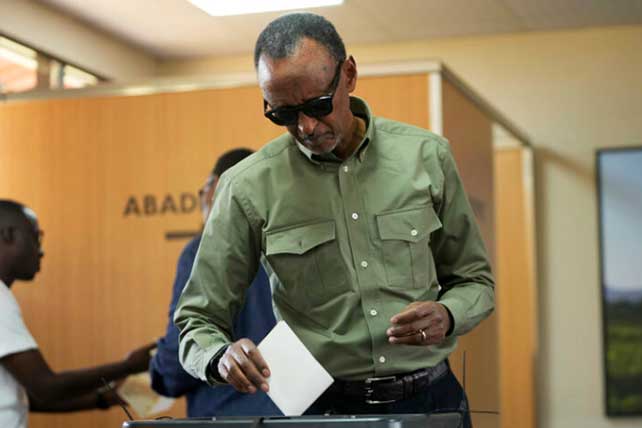KIGALI, Rwanda (RNS) — On a recent Sunday morning, a dozen people congregated in a home in the Nyabisindu neighborhood of Rwanda’s capital to ponder their next steps after the government shuttered numerous churches for noncompliance with health and safety regulations.
“We are appalled by the government’s denial of our freedom to worship our God,” said a woman whose small Pentecostal church was among the nearly 10,000 closed in late July and early August. “We are compelled to hold our services in secret and in silence. Our inability to pray aloud, sing, and express our devotion to God is a result of our fear of arrest.”
The woman, who asked to remain anonymous for fear of retribution from security officials, accused Rwanda’s president, Paul Kagame, who ordered the closures, of displaying dictatorial tendencies, warning that “God will punish him for opposing the spread of the gospel.”
RELATED: Rwanda Government Shuts More Than 5,000 Churches, Claiming Code Violations
The closures were carried out in accordance with a 2018 law that mandates that places of worship meet safety and hygiene standards, including proper infrastructure, parking, fire hazard equipment and soundproofing systems, and that they are safe to occupy. The law also requires pastors to hold university degrees in theology, and churches to obtain legal registration and provide clear statements of their doctrine.
Human Rights Watch has cited Kagame as one of the world’s worst offenders against freedom of expression and other basic human freedoms, reporting that those who criticize his government face repression, including killings, kidnappings, beatings, enforced disappearances and arbitrary detention.
But the government has said that the crackdown is not aimed at restricting religion, but part of an ongoing effort to protect Rwandans from corruption and fraud. Kagame, who has proposed taxing churches, said after winning a fourth term in July that he opposed the “mushrooming churches” that “squeeze even the last penny from poor Rwandans.”
“This nationwide operation is dedicated to upholding the rule of law within churches,” said Usta Kaitesi, CEO of the Rwanda Governance Board, which oversees the delivery of services in the East African nation. “We are steadfast in our pursuit of proper standards for places of worship. It is essential for people to comprehend that these guidelines are designed to promote healthy and safe practices in worship.”
A church elder representing the Association of Pentecostal Churches in Rwanda, who also spoke to RNS on condition of anonymity, claimed that the authorities had targeted Pentecostal churches, closing hundreds without prior notice, because pastors did not have academic degrees or certificates in theology. “It’s God who calls people to serve him,” the elder said, “and not the level of education or intelligence someone has.”
The elder said the government has effectively forced the association’s churches underground. “The closures have left us with no option but to gather in our houses and worship secretly,” he said, noting that security agencies were on the lookout for such gatherings. “The fear of arrest has forced congregants to be very careful while gathering, to ensure they do it secretly, and pray in low tones, so that no one hears, even their neighbor, because anyone can report you to the authorities.”

